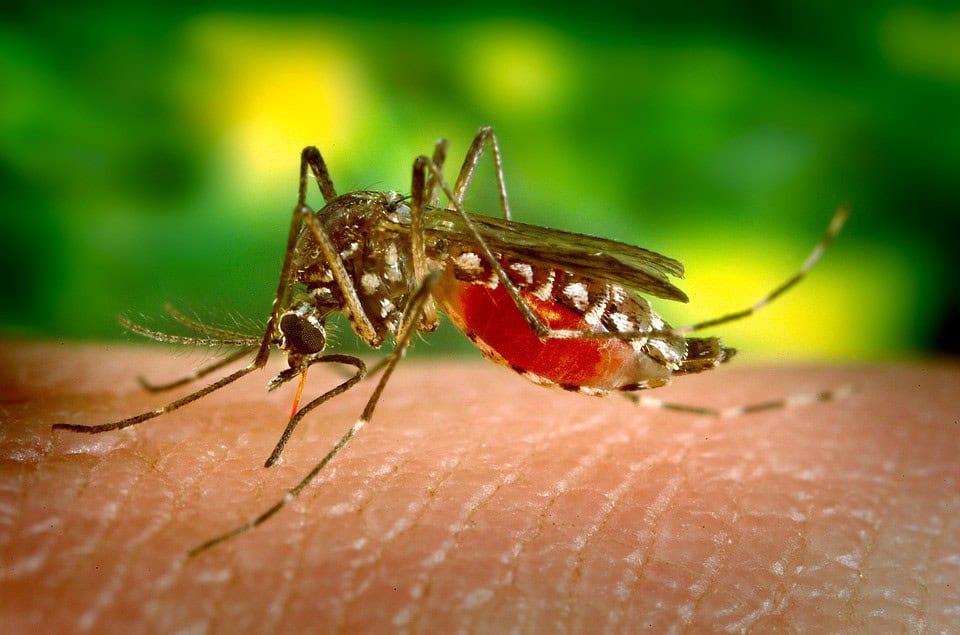
Press release issued by Gloucester County:
Freeholder Director Robert M. Damminger and Freeholder Heather Simmons recently helped stock retention basins in Gloucester County with 7,000 Fathead Minnow, a fish that eat the larva of mosquitoes.
Gloucester County will be stocking sites in every town within the county during the mosquito season.
Freeholder Director Damminger said, “We plan to release 20,000 mosquito larva eating fish this year. The county has been stocking retention basins, woodland pools and other fresh water locations throughout the county for several years with these natural mosquito larva predators and we have seen success in combating mosquitoes.”
“Mosquitos can carry Zika, West Nile, Equine Encephalitis and other viruses and we want to do everything we can to protect the health of our residents and our pets, animals and wildlife,” stated the director.
Damminger said that Gloucester County uses an Integrated Mosquito Management program to control the mosquito population. The program includes surveillance, larvacide, adulticide and public awareness to help reduce mosquito breeding grounds.
Freeholder Heather Simmons, Liaison to the Department of Public Works, said that in addition to the different species of mosquito larva eating fish, equipment new to the county will also be utilized this year that will make it easier to apply larvacide to right-of-ways, ditches and treat larger areas.
“This wet spring could lead into a very active mosquito season. We are always improving our operations and employing techniques that can help reduce the mosquito population, particularly by targeting breeding grounds year round,” Simmons said.
“The fish are an effective and green method of reducing the mosquito population,” continued Simmons, “They are not a danger to humans or any other wildlife other than mosquito larva.”
Gloucester County Mosquito Control Division works throughout the year conducting surveillance and fighting mosquito breeding grounds.
“If our Mosquito Control Division was not working on this issue throughout the year our summers would be unbearable,” Simmons said.
The county receives the fish from the New Jersey State Mosquito Control Commission, Division of Fish, Game and Wildlife. There are currently five different species of mosquito eating fish available for use in New Jersey including the Mosquitofish (Gambusia affinis), Fathead Minnow (Pimephales promelas), Freshwater killfish (Fundulus diaphanous), Pumpkinseed sunfish (Lepornis gibbosus), and Bluegill sunfish (Lepornis macrochirus).
Residents should monitor their property for any containers holding water and empty standing water daily; cover or drill holes in the bottom of containers if needed. Make certain that swimming pools are clean and sanitized. Also maintain mechanical barriers such as window screening.
Freeholder Jim Jefferson, liaison to the Health Department, said, “We want our residents to have a healthy and enjoyable summer and we can work together to achieve that by keeping the mosquito population down. The Gloucester County Health Department will investigate and work closely with local officials to assure abatement of conditions that support mosquito breeding habitats, such as standing water.”
The Gloucester County Mosquito Control Division receives and responds to requests from County residents, schools, businesses and organizations and will provide application of EPA approved pesticides upon request.
Mosquito Control can be reached Monday through Friday, 8 a.m. to 4 p.m. at (856) 307–6400.
Residents can also contact the Gloucester County Health Department with any concerns and/or complaints, Monday through Friday, 8:30 a.m. to 4:30 p.m. at (856) 218–4170.









